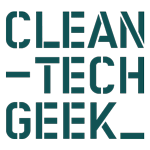Cleantech Geek
Be Bold. Make the Change. Have a meaningful Impact.
Written by Jon McNair | ENERGY REV
First published here • JUNE 28, 2021
Latest Greek auction points to future market realities
The steady reduction in the price of winning tariffs in successive rounds of Greek renewables auctions, capped by the most recent edition in May, has the potential to realign the market in the country.
Over successive auctions held over recent years, Greece has followed most other countries in registering incremental drops in the tariffs awarded to successful projects.
And May’s (2021) latest 350MW edition of the Greek programme was no exception as successful bid prices dipped down to an average of EUR 37.60/MWh, although falling as far as EUR 32.97 in the case of one project: a 19.3MW solar farm developed by local group Egnatia.
Other successful bidders included Lightsource bp, in a collaboration with another local developer Kiefer TEK, which secured 20-year contracts for 140MW of solar PV capacity at an average price of EUR 38.50/MWh. Meanwhile, Mytilineos also bagged tariffs for 140MW of solar, at a slightly lower average rate of EUR 37/MWh.
Read more 
